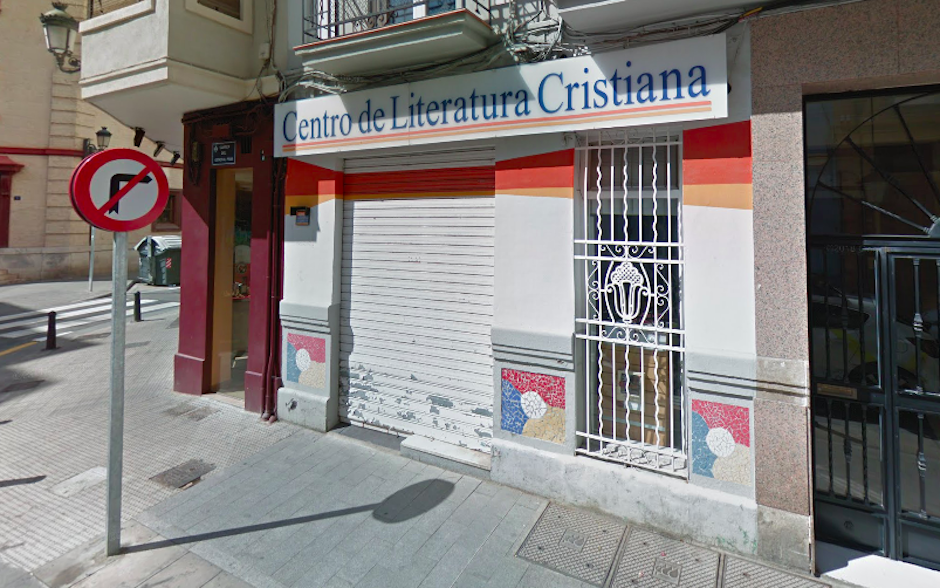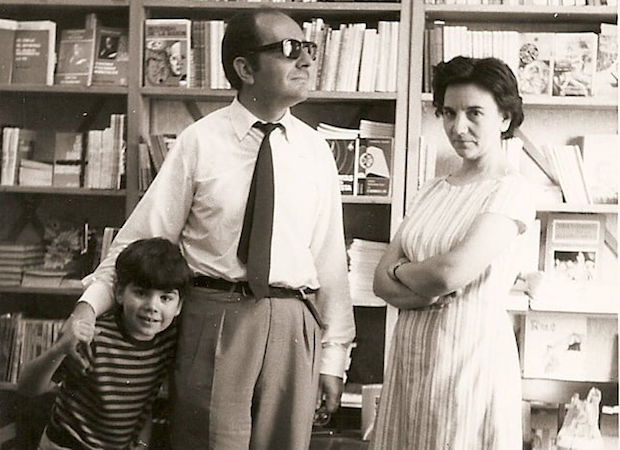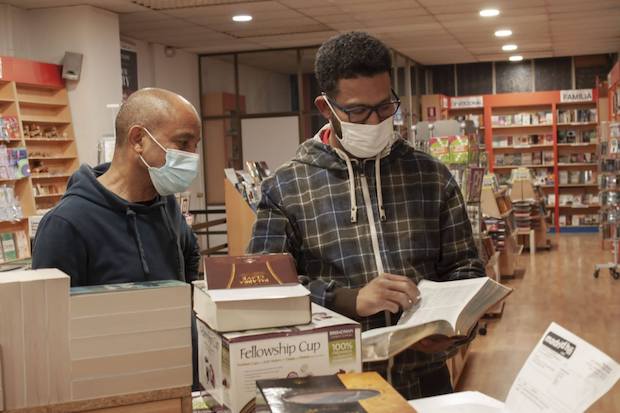Closure of CLC in Spain raises questions about resilience of Christian bookstores
After 55 years of work, the pandemic has aggravated the crisis of the ministry in Spain. The impact of the internet and the secularisation of Europe are a challenge for the entire sector.
BARCELONA · 29 JANUARY 2021 · 15:46 CET

The year it celebrated its 55th anniversary in Spain, the ministry Christian Literature Centre (CLC) announced at the end of November the closure of all its operations in the country.
The work began in 1966, explains the theologian and Evangelical Focus author José de Segovia, whose parents were responsible for creating a Spanish delegation of the English mission founded in 1941.
“My parents thought that the international name 'Crusade', which CLC had had since its inception, was inappropriate in Spain because that was how dictator Franscico Franco called the military uprising that started the Civil War, so that they changed the name to 'Centre', keeping the acronym and the logo of the mission and its evangelistic purpose”, he explains.
De Segovia recalls that “the Religious Freedom law of 1967 did not even exist yet. In fact, my father got permission to set up a table with books in a store in Madrid, but the Secretary of the Evangelical Defence Commission begged him not to do so, so as not to jeopardise the legislation that was in place”.
Causes of the closure
Five decades later, economic crises, the impact of the internet, the increasing secularisation in Europe, and now the effect of the Covid-19 pandemic, have led to the closure of CLC in Spain.
“Since 2008, we have struggled to recover from the financial crisis that hit the world hard, but especially Spain”, CLC International regional Director, Gary Chamberlin, says.
“After closing our shops in Malaga and Murcia, we were hopeful that we could overcome the difficulties. We saw hopeful signs and that gave us enough encouragement to continue. Like most businesses in Spain, we had to close for many weeks and saw a big reduction in the number of customers. Unfortunately, we cannot continue during this crisis”, he adds.
Founded during the World War II, CLC is an organisation that currently works in 46 countries. “The ministry is still very strong in most of the 46 countries where CLC works around the world”, Chamberlin points out.
“It is true that almost every country has had difficulties. However, we see our global staff very committed to distributing Christian literature and Bibles, so that people can come to faith and maturity in Jesus Christ”, he underlines.
Furthermore, the Christian groyup has seen a “substantial growth especially in Latin America and India”.
First steps in Spain
When it arrived in Spain, the ministry was first set up in a “book depository, and then moved to an office that worked as a clandestine bookstore in one of the main streets of Madrid”, De Segovia recalls.
“My father brought books to trade fairs in many cities all year round, without a car or a van. He didn't even know how to drive! He carried boxes by post office and trains all the time”, he says.

At that time, when non-Catholic Christians hardly had any freedoms, “the bookstores that opened in Madrid and Valencia were a meeting point for the evangelicals, who would stop by to chat and buy a book”,
“My parents' vision was to use special dates, like Book Day, regional holidays or the Madrid Book Fair, to put Bibles and Christian literature on the streets. The last thing on their minds back then was sales”, he stresses.
According to De Segovia , “in the 1970s, CLC experienced a great expansion with the arrival of new missionaries in Madrid, the involvement of more people in Valencia, and a new bookshop in Seville”.
“It has been a joy and an honour to serve our wonderful customers for the past 55 years. We feel blessed that the Lord has given us this opportunity. We pray that God will bless the church in Spain and that many will know the love of God and the living Lord”, Chamberlin says.
The challenges of the new century
Over the years, the challenges of the Christian bookstores ministries have been changing, especially since the emergence of new technologies.
“The arrival of the Internet has changed everything, starting with the systematic piracy of evangelical books, which for some time has deterred publishers from publishing e-books because of the constant exchange on the Internet, where almost any book can now be read illegally”, De Segovia explains.
The literature “received a 'death blow' with the 'everything is free' of the Internet. The quality has dropped dramatically. Most of those who still remain are secular property conglomerates coming from the United States”, he underlines.
“There are exceptions of good evangelical publishing houses in Spain and Latin America that deserve all our support, I think they are publishing some of the best books in our language”, the theologian of Madrid says.
But technology is not the only reason, says Chamberlin. “Economic and social factors have been key in the decision to close. Since the financial crisis in 2008, CLC Spain has had several kind of problems. Many Spaniards, including Christians, have left the country to find work elsewhere and unemployment reached very high rates. This affected our ministry very much”.

Furthermore, “the arrival of the coronavirus has only aggravated an already difficult environment for our bookshops”, the international director adds.
The organisation says it has tried “to maintain this important ministry with much sacrifice, especially in the last twelve years and we are sad for all the staff who will soon be unemployed. We pray that God will sustain them and open new opportunities for each of them”.
The new context of growing secularism
“We sincerely hope that the remaining bookshops in Spain can flourish and grow over the next few years. With the closure of the three CLC shops and the CLC warehouse, we hope that the remaining shops will benefit and be able to be more stable in a difficult environment”, Chamberlin stresses.
The regional director of CLC International says they “see with sadness that there are several cities in Spain that do not have a Christian bookstore”.
But the general context does not bode well for the Christian literature. “Unlike in the United States, in Europe you can't get such books in just any bookstore”, De Segovia underlines.
And there are key cultural differencies between Europa and the US, says Segovia. “ This can be seen in translations. American literature does not understand European secularisation. Their social and political concepts are influenced by the 'culture war' that is now going on in the United States”.
“The negative thing is that they have passed their concerns to the Latin world, where the same expressions are already being used”, he warns.
Supporting local Christian bookshops
CLC emphasises that “it is really important that Spanish pastors and churches support and promote their local bookstores to the best of their ability”.
“If they do not, there is a risk that even more Christian bookshops will close in the coming years. This is an alarming scenario considering that more than 50% of Christians say that reading Christian books was a key factor in their conversion”, Chamberlin adds.
De Segovia points out that “the vision that my father shared with other theologians and authors like José Grau, René Padilla and Samuel Escobar, has been replaced by the promotional apparatus of a myriad of trendy American preachers, who now have strong followers on social media all over the world”.
That has led, according to De Segovia, to become “a by-product of American evangelical culture”.
Published in: Evangelical Focus - culture - Closure of CLC in Spain raises questions about resilience of Christian bookstores
